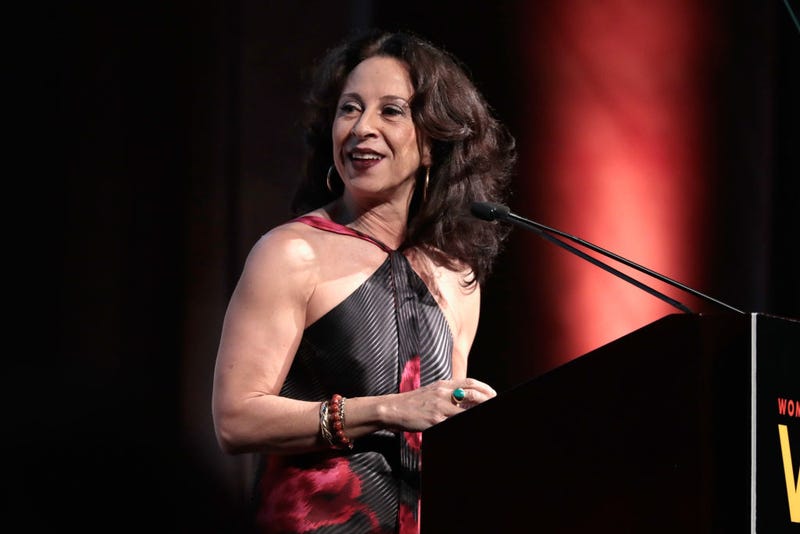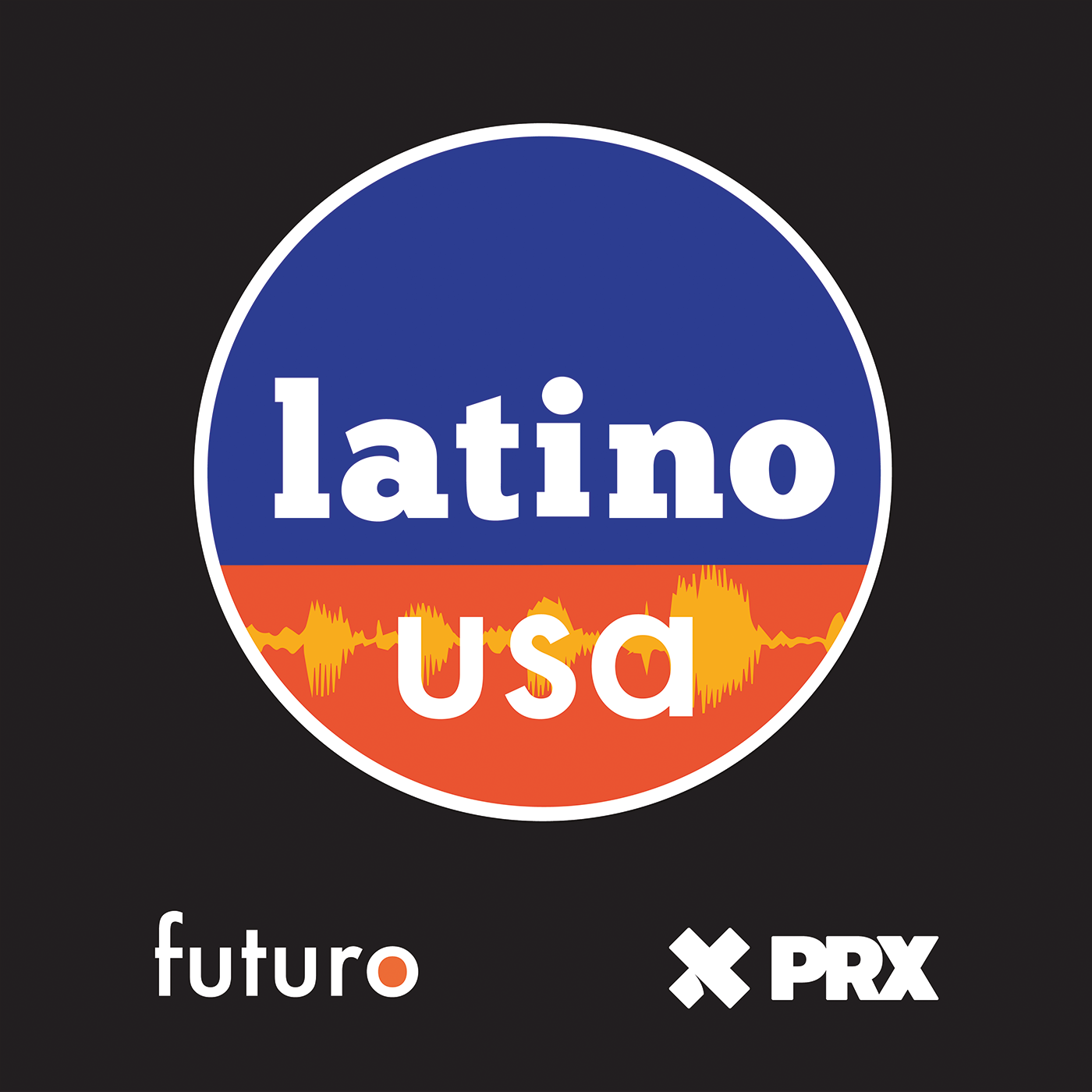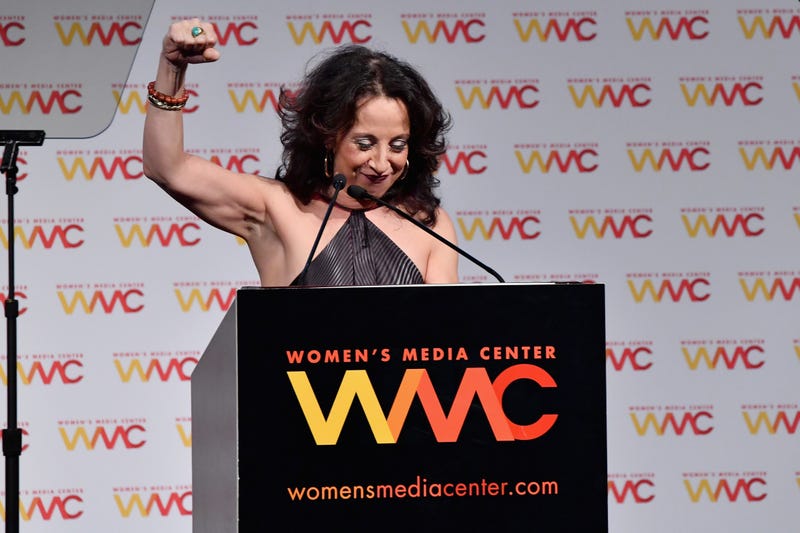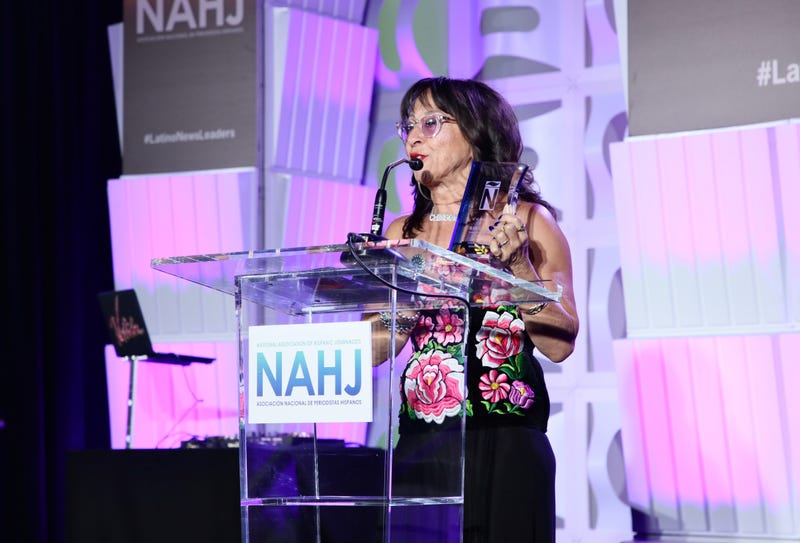
Maria Hinojosa never intended to write a book for young readers. The 61-year-old, award-winning journalist already had a successful memoir that weaved issues of immigration policy into stories of her life and she was nervous about trying to adapt those topics for a younger audience.
“When my agent told me, '’Hey, Maria, you really should write a book for young readers,’ I was like, ‘No way. What are you thinking? I don't write for kids. I write serious, serious stuff,’” Hinojosa told 1010 WINS.
Despite her hesitation, there was this one data point Hinojosa kept thinking about.
“The median age for Latinos and Latinas in the United States of America is 11,” Hinojosa explained. “I had to write a book for young readers. I had to write a book for 10-year-olds, it was just imperative. And I never expected that I would make that decision. I was very scared.”

Born in Mexico City, Mexico, Hinojosa was just a baby when she and her family immigrated to the United States. She lived many years of her life not really grasping just how incredible, and frightening, her arrival to the country actually was.
Hinojosa is the youngest of her parent’s four children and was only a year old when her mom made the journey with her and her siblings to the U.S. Her father had already settled in Illinois six months earlier after accepting a research and teaching position at the University of Chicago.
It was on that voyage with her mother and three siblings where Hinojosa developed a small rash on her face from a scratchy blanket which would cause some trouble when the family arrived at the Dallas, Texas airport during the first leg of their trip. Hinojosa’s mother was told her baby girl would have to be separated from her, not allowed to move on to Chicago with the rest of the clan, because of the seemingly suspicious rash.
“My petite, polite mother started yelling at the man, shaking her finger,” Hinojosa wrote in her memoir Once I Was You. “Something inside of her summoned up a voice she had never used before and told this man, no matter how intimidating and tall he was, that he was not going to take her baby, her chicle, away.”
Her mother’s resistance successful, Hinojosa made it to Chicago with her family and resigned the story of her arrival to the country as an example of her mother’s powerful bravery. But decades later, the memory took on new meaning.
“It wasn't until my mom was in her 80s and Donald Trump decided to separate families [at the border] that my mom called me in tears saying, ‘It could have been you,’” Hinojosa said. “‘It could have been me, they almost took you from me.’”
The reaction Hinijosa’s mother had to the reports coming out of the border separation crisis only validated her own approach to journalism throughout her long career. Having come up in national newsrooms where she was often the only Latina, Hinojosa always fought to not only cover issues important to the Latino community, but do so in nuanced and compassionate ways.
“Once I realized that my arrival story was not a rosy, simple one but a more complicated one, that's when I understood why I was going to be the journalist that I was and why I care about the stories that I care about,” she said.
Hinojosa’s professional career began after graduating from Barnard in 1984. She accepted a position at NPR working as a special reporter covering Latino issues after a stint there as an intern and production assistant. Hinojosa constantly stood out through her persistence with getting a seat at the table but also with her angles to news stories, angles few others were giving airtime to.

In the early 1990s, after consistent valuable coverage of events, issues and people in New York City and beyond, Hinojosa was asked to anchor a new radio show called "Latino USA." The weekly public radio program aimed to tell stories of and give insight on topics through the lived experiences of Latinos across the nation. The show is still in production nearly 30 years later and Hinojosa is now the executive producer.
But in those three decades, a lot more has happened for Hinojosa. She became the first Latino correspondent for CNN followed by PBS. She’s hosted an Emmy-award winning talk show from WGBH and written three books. And she’s also the recipient of numerous awards including two Robert F. Kennedy Awards, the Edward R. Murrow Award from the Overseas Press Club and most recently: a Pulitzer Prize.

Through it all, Hinojosa has lovingly made New York City her home. In 2018, then-mayor Bill de Blasio named October 9 Maria Hinojosa day in her honor. Having lived in Washington Heights for years before becoming a Harlem resident, Hinojosa feels deeply connected to the ways the city constantly reminds her of community.
“I am a New Yorker through and through,” Hinojosa said. “I love my city, I love my community of Harlem. I am a deep Harlemite. My Latino and Latina brothers and sisters are everywhere.”
Harlem is also home to Hinojosa’s organization Futuro Media, a non-profit multimedia platform which produces shows and content that tell stories from often overlooked points of view. Futuro Media was started in 2010 after Hinojosa, who was on the job hunt after nearly 20 years in the field, had a bizarre meeting with an executive at "60 minutes."

“I was so excited until the executive asked me over coffee if I could wait until one of the older white men on their staff got sick or died before they offered me a job,” Hinojosa wrote in her memoir.
In the eleven years since, Futuro Media continues to defy expectations. The small but mighty media organization now produces "Latino USA" as well as several other original shows and podcast series including "Suave," which earned the outlet a Pulitzer Prize this year.
By the time Hinojosa decided to write a memoir in 2015, she had a lot to look back on. Her book Once I Was You: A Memoir of Love and Hate in a Torn America, was published in 2020 and then came a new challenge: making it palatable for younger readers. Hinojosa explained that she had to harness talents from a distant past in order to write it.
“I actually drew on the thing that got me to New York in the first place, which is my actor’s training, and I became a 10 year old, in my head, in my body, in my mind,” Hinojosa said. “I literally became a 10 year old and I was writing the book telling the stories as if I was a 10 year old talking to another 10 year old. And it was very unorthodox and very scary. But I think the attitude and the humor really helped connect it to kids.”
In August, that version of her memoir was published and added to Hinojosa’s trove of accomplishments, but she’s not done yet. It’s hard for Hinojosa to pinpoint what’s next because there’s just so much she has in mind. On a personal level, she’s embracing the fact that her two grown-up children are now leaving home. Professionally, she just began an investigative unit with Futuro Media and hopes to hold more people in power accountable. Maybe, Hinojosa said, she’ll explore writing a screenplay or another book. But behind it all, the driving force is, as it always has been, a desire to give immigrant and Latino stories the depth and complexity they deserve.
“People say, ‘Oh, Maria, you're obsessed with immigrants and Mexicans and Latinos, because you're an immigrant. You're a Mexican immigrant,” Hinojosa said. “My role as a journalist, as a Latina journalist, as a proud Mexican immigrant woman journalist, is to document these stories and to give them life. And for people to understand that there is nothing to be afraid of.”
LISTEN on the Audacy App
Sign Up and Follow Audacy
Facebook | Twitter | Instagram

